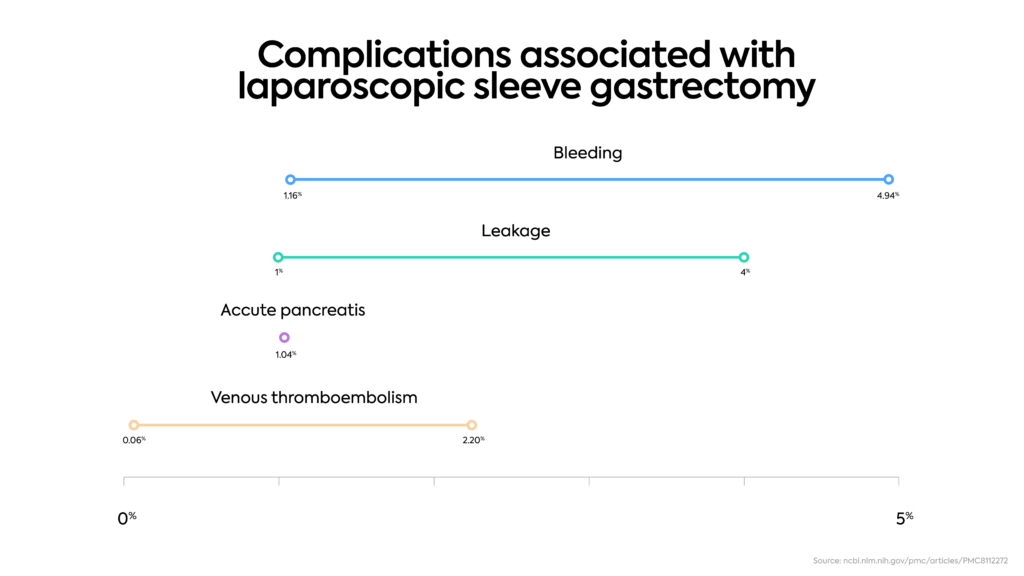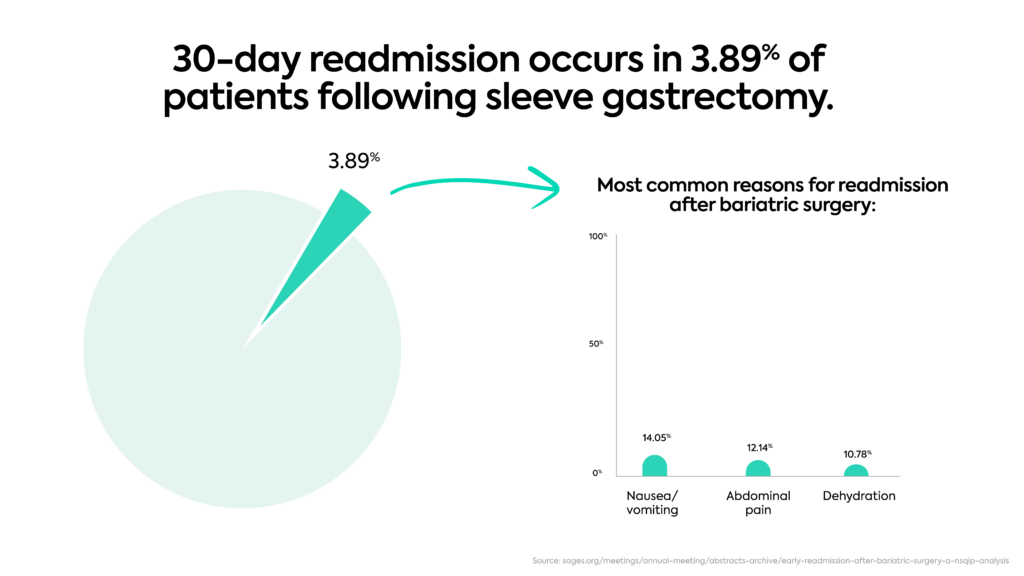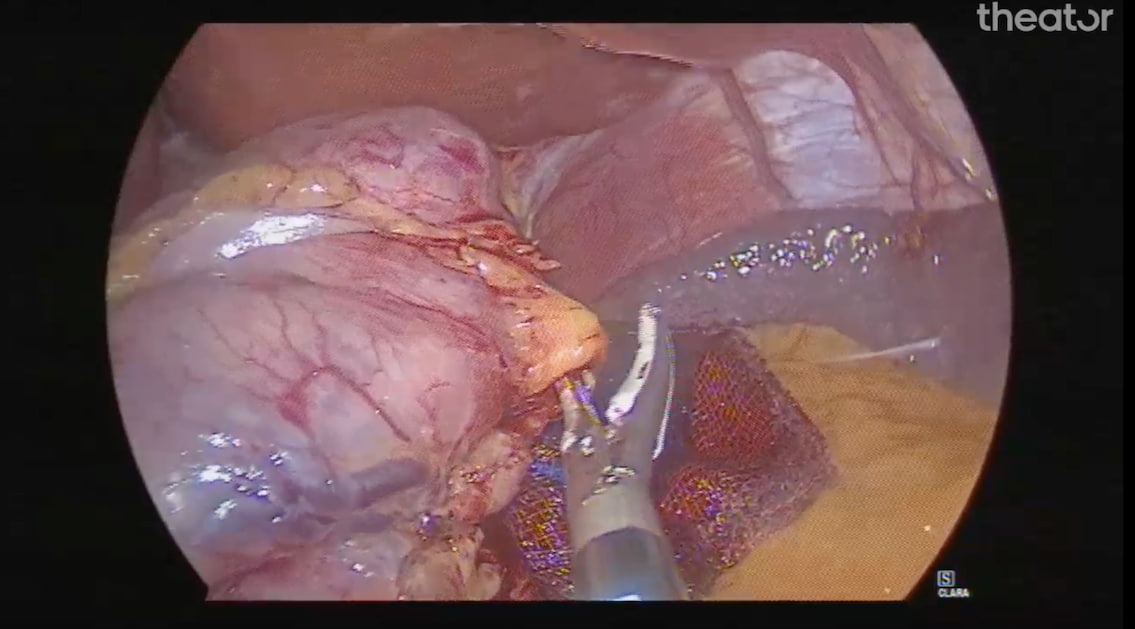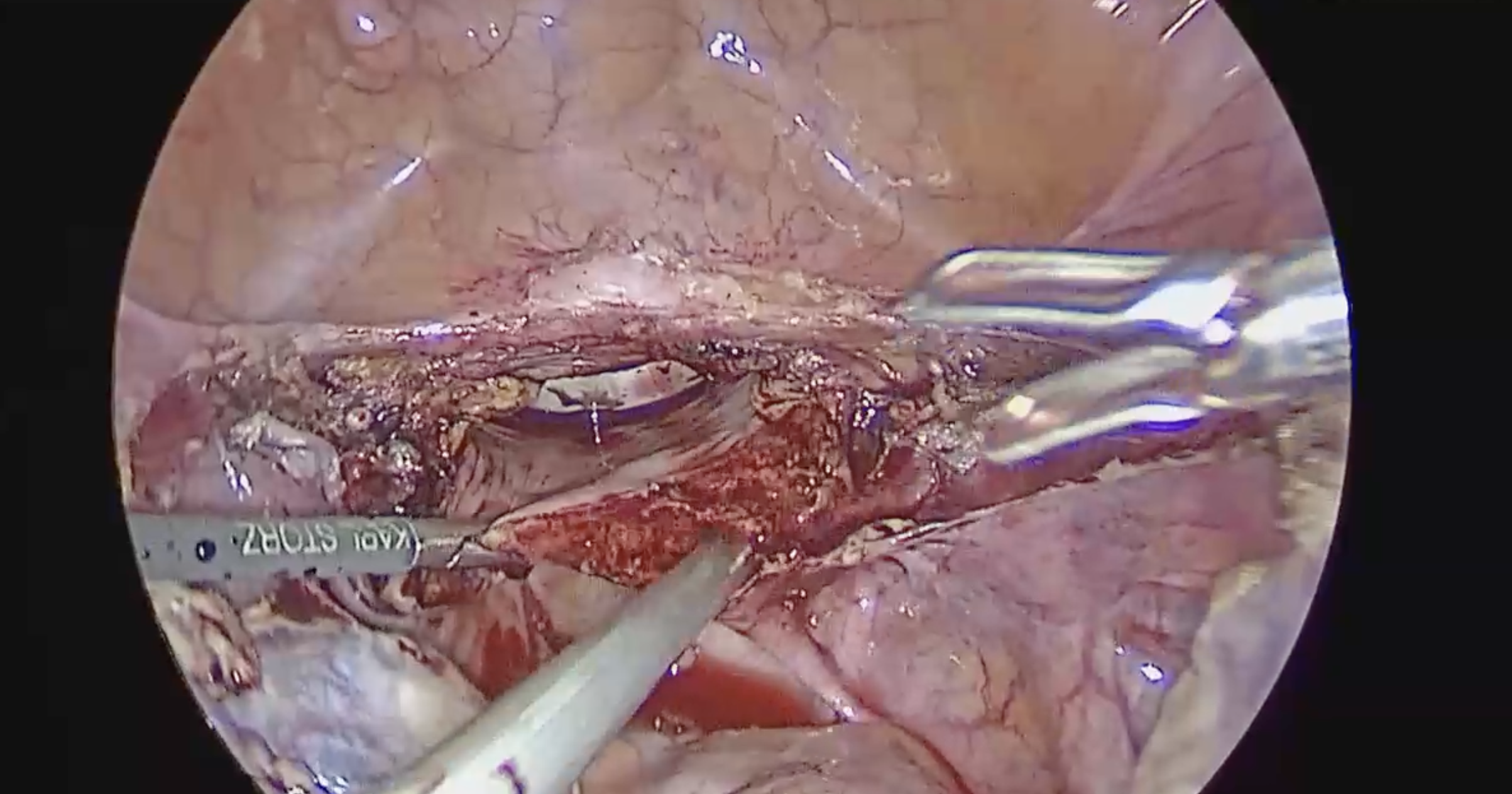Sleeve Gastrectomy Insights
Obesity is a public health crisis in the US, affecting more than one third of adults. In addition to diet and exercise, medications and surgical procedures are effective obesity treatments for eligible patients, and laparoscopic vertical sleeve gastrectomy is the most commonly performed weight loss surgery in the world.
Theator’s Surgical Intelligence database has compiled more than 700 sleeve gastrectomy procedures to date from 10 different health systems.
Like all surgical procedures, sleeve gastrectomy has potential complications, including:
- Bleeding (1.16 – 4.94 %)
- Leakage (1 – 4%)
- Acute pancreatitis (1.04%)
- Venous thromboembolism (0.06 – 2.20%)

30-day readmission occurs in 3.89% of patients following sleeve gastrectomy. The most common reasons for readmission after bariatric surgery include:
- Nausea/vomiting (14.05%)
- Abdominal pain (12.14%)
- Dehydration (10.78%)

Importantly, international best practice guidelines for sleeve gastrectomy note that a lack of standardization can lead to poor outcomes, and if surgeons consistently followed surgical practice techniques, surgical outcomes would be better.
For more sleeve gastrectomy insights, download our procedure spotlight report.
Surgical Practices in Sleeve Gastrectomy
Guidance on surgical practices for sleeve gastrectomy continues to evolve as the body of research on this topic grows. This is excellent news for patients, as the more practices are standardized based on clinical evidence, the better outcomes will be.
For example, staple line reinforcement may reduce the risk of bleeding along the suture line and other perioperative complications. Notably, there is no current evidence to support one staple line reinforcement technique over another, so techniques vary by surgeon and across institutions.
This is just one metric that Theator’s Surgical Intelligence Platform recognizes, analyzes, and connects to health system outcomes so hospital administrators and surgeons can take a data-driven approach to improving the quality of surgical care.
Curious to know what other insights we’ve seen in our database of gastric sleeve surgeries? Download the full report here.










